The 6th China Applied Economics Annual Conference (2025) was held from May 10th to 11th in Lingang, Shanghai. The event was co-hosted by Renmin University of China (RUC) and Shanghai University of Finance and Economics (SUFE), under the guidance of the Applied Economics Discipline Evaluation Group of the State Council's Academic Degrees Committee.
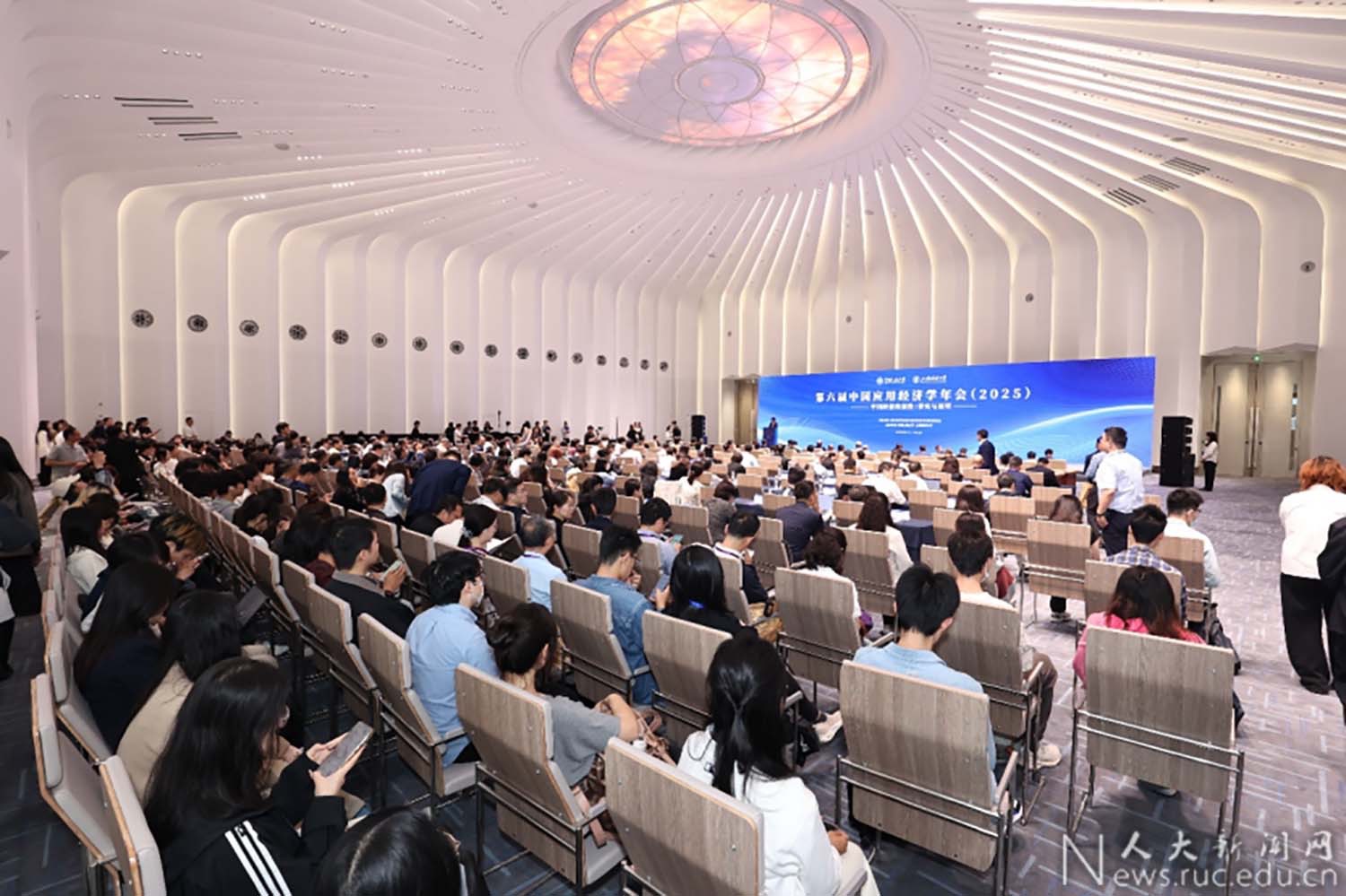
This year’s theme, “The Resilience of China’s Economy: Facts and Prospects,” brought together leading scholars and experts nationwide. Discussions spanned key topics such as counter-cyclical policy design, structural reforms, industrial upgrading, and fiscal sustainability, aiming to inform academic advancement and national policy strategy.
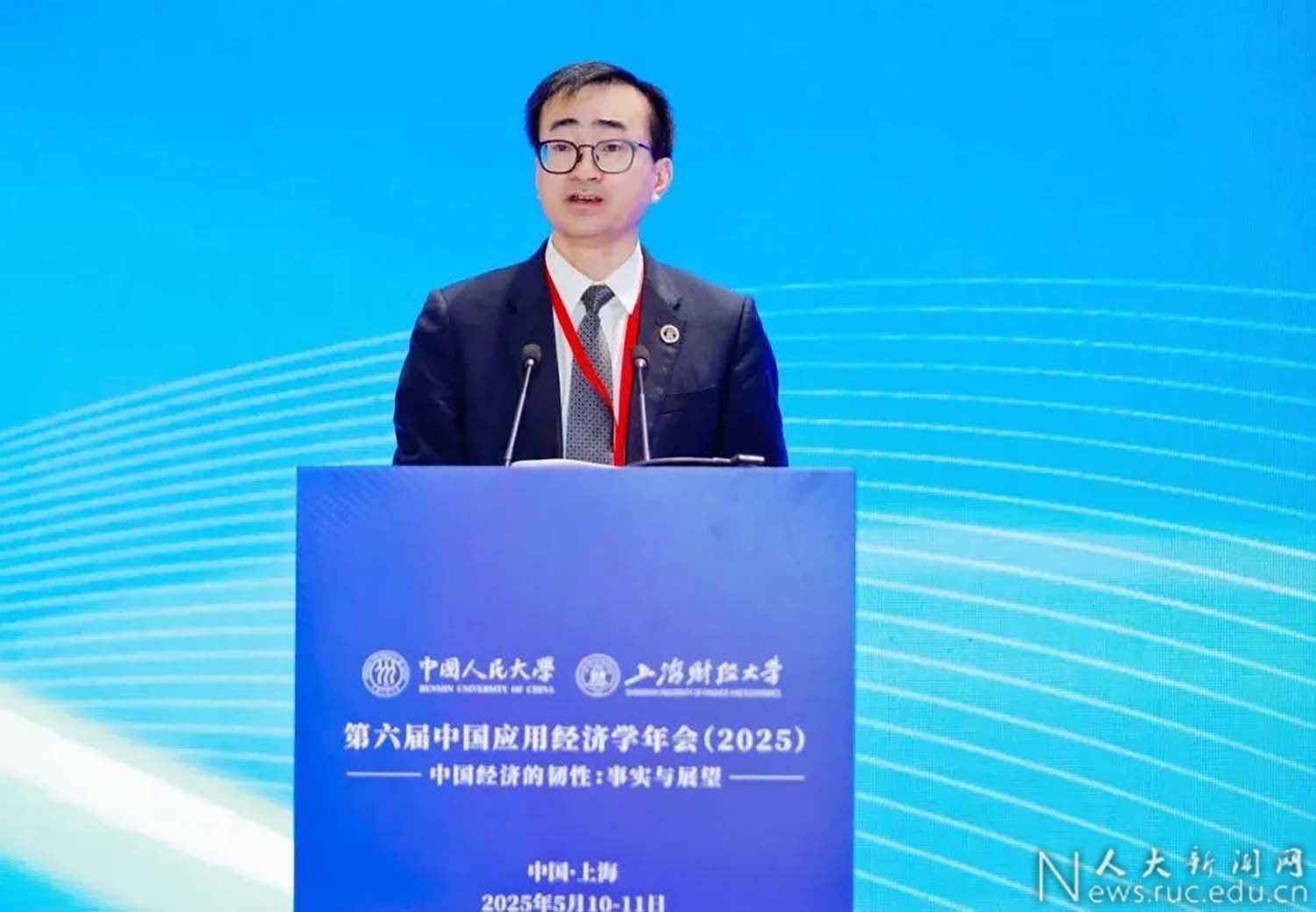
During the opening ceremony on May 11th, Liu Yuanchun, President of SUFE, highlighted the conference’s growing influence since its inception in 2019. He emphasized SUFE’s strategic investments in emerging disciplines such as advanced finance, digital economy, and AI, positioning applied economics at the core of an interdisciplinary academic frontier.
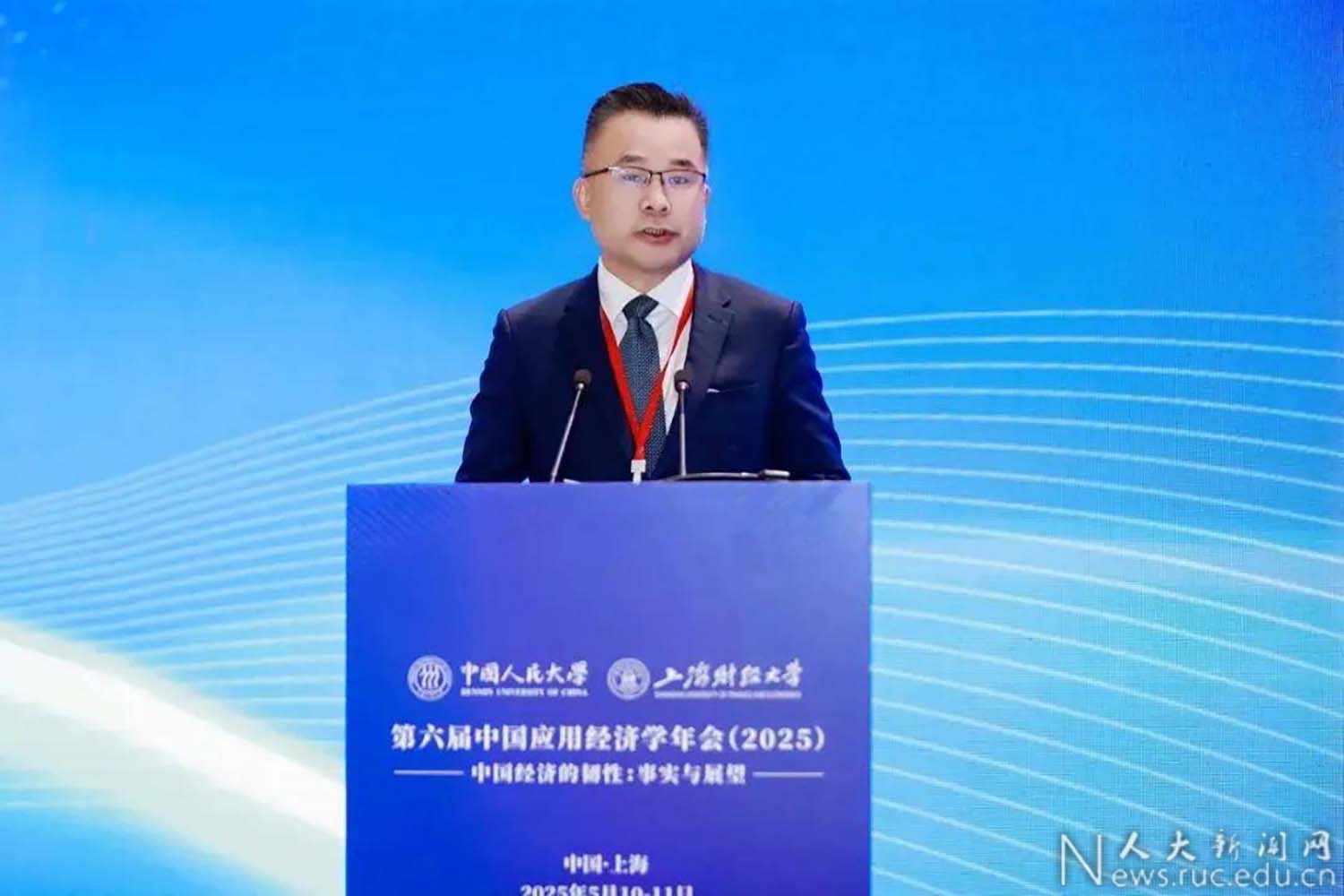
Zheng Xinye, Vice President of RUC, stressed the significance of the conference in fostering collaboration and theoretical innovation. He introduced the concept of a “new productivity function,” urging a macro-level rethink of China’s growth model to address the “three confrontations” — demographic, structural, and external. He underscored the importance of investing in human capital, new infrastructure, equipment renewal, and strategic inland development to bolster economic resilience.
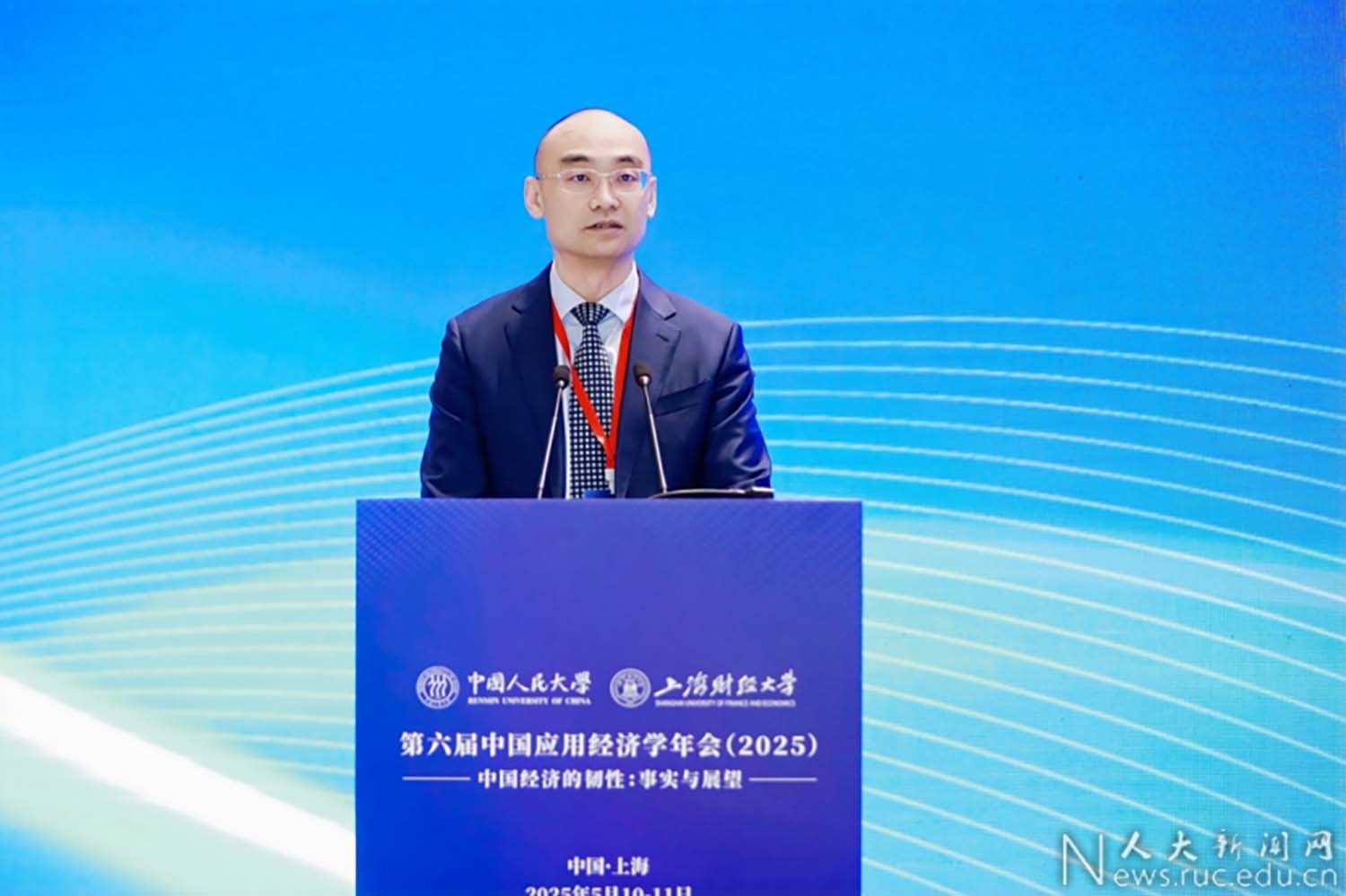
Lv Wei, head of the Applied Economics Discipline Evaluation Group of the State Council's Academic Degrees Committee and former president of Dongbei University of Finance and Economics, called for constructing a China-centered, pragmatic economic framework. Drawing on examples like the resilience of Yiwu’s local economy and the impact of AI and deglobalization, he stressed the urgency of applied economics being both relevant and responsive to real-world challenges.
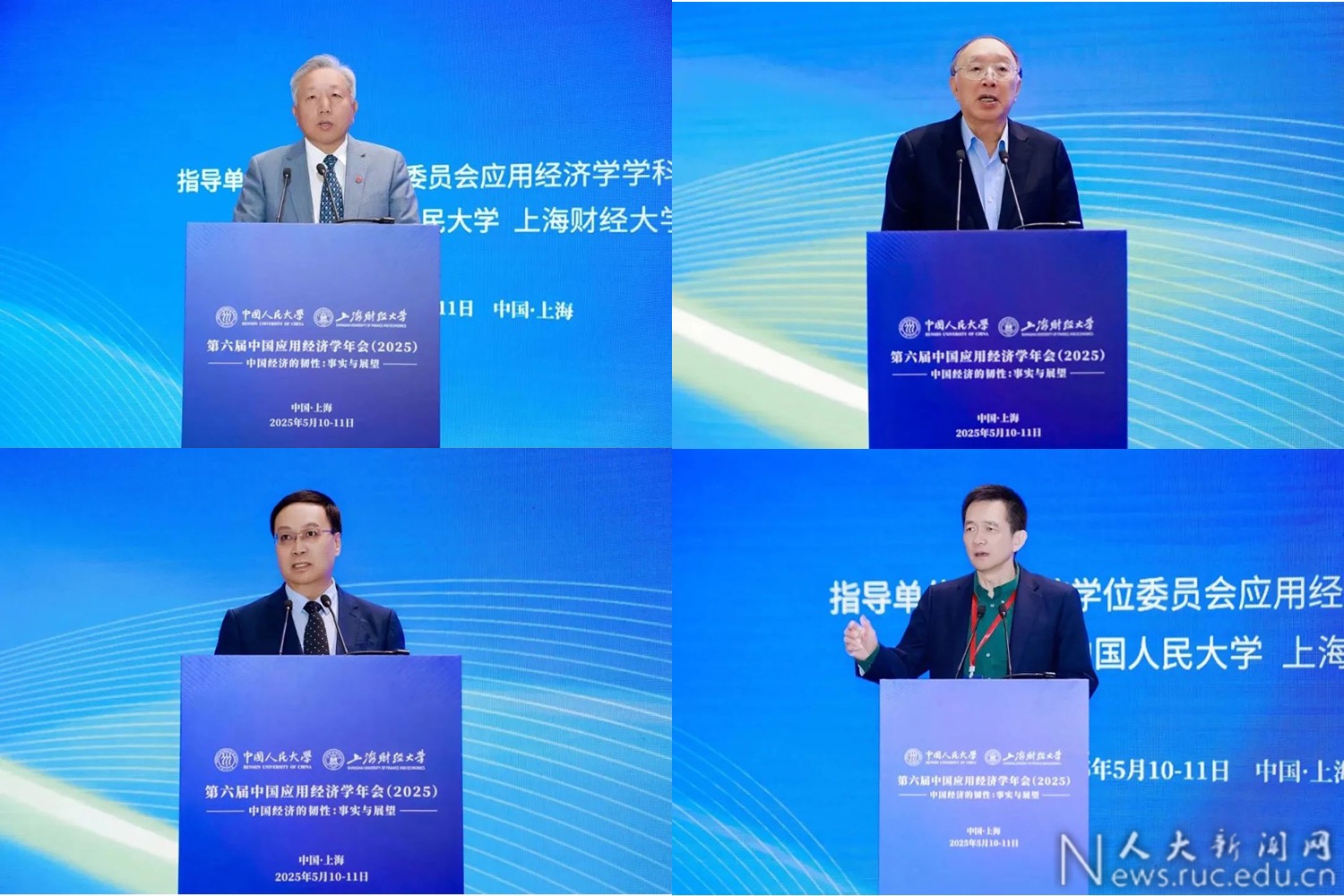
Wu Xiaoqiu, former Vice President of RUC, and Director of the National Institute of Finance, in his keynote speech titled The Value of Finance, underscored the critical role of financial systems in sustaining economic modernization. He argued for a balanced approach between marketization, rule of law, domestic demand expansion, and openness, describing finance as a foundational institutional pillar of long-term development.
Other keynote speakers included Huang Qifan, executive vice chairman of the Academic Committee of the China National Innovation and Development Strategy Research Association and former mayor of Chongqing; Gao Peiyong, former Vice President of the Chinese Academy of Social Sciences; and Yao Yang, Professor at Peking University’s National School of Development. Their analyses covered industrial upgrading, fiscal reform, and macroeconomic policy, all aimed at identifying the structural logic and future pathways of China’s economic resilience.
The event also featured a Presidents’ Forum, where university leaders discussed the role of higher education in developing applied economics talent and serving national governance.
The General Forum focused on practice-oriented and policy-relevant challenges, highlighting the discipline’s growing contribution to the modernization of China’s economic governance.
In addition to the main sessions, 11 parallel forums covered a wide range of subfields including finance, public finance, labor economics, international trade, regional economics, macroeconomics, digital economy, econometrics, and industrial economics, offering a comprehensive platform for in-depth exploration.
As a flagship annual event in China’s applied economics landscape, the conference not only reviewed institutional responses to external shocks but also introduced new questions, analytical frameworks, and paradigms for the future. Looking ahead, applied economics will continue to embrace problem-solving and institutional innovation, providing both theoretical and practical answers to China’s development challenges — and contributing insight to the global discourse.


